Barricades
Denny is far down the beach in front of us. He has taken to doing this, lately, this striding ahead of us without noticing that his wife and daughter can’t keep up. I focus my eyes on his back, willing him to turn around and wait for us, but he doesn’t. From time to time he pauses, and looks far out to sea, but he never looks back.
Michelle is singing to herself. The sound of the rumbling waves from around the far point and the bite of the salt breeze delight her, and her cheeks burn to an almost painful shade of coral. Sometimes she looks ahead to her father, but she doesn’t ask me why he doesn’t wait. I don’t hurry her. She swings her pail and shovel and stoops to pick up bits of wood, looking over each piece carefully and then tossing it away, as far as she can throw it. Her pail is half full of rocks as smooth and rounded as lumps of resin. She tells me she’s taking them back home as a present for Mrs. Whittaker, her second grade teacher.
I rub a dull black rock between my fingers as we walk. It must have dropped into the sea rough-edged and broken sharp, but then the sea rolled it and churned it and tamed it, taking away its special angles and points. The beach is covered with smooth dull rocks. Above the tide line the driftwood is mounded high, a long, pale frame along the rim of the ocean, all the pieces bleached to the same flat white, like the bones of huge beasts, long dead.
Denny is still pulling ahead. He is almost at the base of the cliff at the far end of the beach. He looks young and strong from here, purposeful, walking like that. I haven’t .,,,,,¬seen him move like that in a long time. I wonder if he is angry with us, or maybe just with me, but I can’t think of any particular reason he would be. I think about calling him to stop, but I am just too tired. I sigh quietly, and Michelle slips her hand into mine.
How can he move so quickly? My legs already hurt from shuffling along the gravelly shore, my feet sinking into the gritty sand. It’s a relief, though, not to have him next to me, cold and silent. We were never good at talking, even in the beginning. Now, it seems, there is nothing to say.
Denny is headed for the path up the cliff. He probably wants to see the waves we can hear hammering the rocks on the other side. They told us in town that we would find the sheltered cove here, one of the few places away from the high surf. It’s cold, because the headland walls hold back the late afternoon sun as well as the full force of the sea.
The roars of the waves are everywhere. I had suggested the Oregon coast for our few days away, though I hadn’t been here in years. I remembered the power of the massive breaks, the energizing raw raggedness of the wild coastline. Now, though, it just seems unrelenting, a never-ending noisy battle between water and earth. Even here, in this protected cove, I hear the rhythmic pounding from the other side of the cliff. I keep glancing up, half expecting to see a gigantic crest breach the cliff and bear down on us, angry and spitting. Denny has disappeared.
I press the back of my hand against my forehead. My eyes ache. I couldn’t sleep again last night. I stared up at the motel ceiling, listening to Denny’s dull snore beside me and Michelle’s deep steady breathing from the cot across the room. As I lay in bed, I probed my mind the way you test an injured limb, moving it carefully, looking for the places it will hurt. I wondered again if Denny is having an affair. Someone hangs up when I answer the phone. I’ve been to his office. I’ve seen the way the women look at him, and look at me, and then look away. They are fresh, sharp, new women. He didn’t even try to hide from me the way he sucked in his stomach and strutted in front of them. In bed last night I pictured him holding, kissing, making love to someone else. I moved my mind in closer, carefully, slowly, to see his hand move over her body, his breath quicken, his eyes shine like they used to shine for me. Still there was no pain, just a kind of numbness. But it is not all numb. There are still places I can’t go because of the pain: I still can’t look at what is happening to us through Michelle’s eyes.
Michelle is reaching for stone after stone, throwing them in the water. She must have a target in mind, because she reacts to some pitches with gleeful giggles, others with a brief pout of disappointment. The stones drop with deep plunks into the icy clear water. She pauses for a moment and looks up to the cliff. When she turns back she is biting her lip, but then she smiles at me. I watch her carefully, wondering what she sees and knows. I look at her a lot lately. I can see no sign in her. Maybe she is too young.
Denny is standing on top of the cliff, arms folded, looking out to sea. I stare up at him, rubbing my arms to keep them warm. He turns towards us and lifts his hand. I say, “Look, there’s Daddy,” and we both wave wildly. Michelle’s face is glowing, beaming up at her father. How do we look to him, as he stands on that cliff with the wild crashing surf behind him, as he stares at us far below on the shadowed crescent shore? Michelle goes back to throwing rocks in the water, but I stand and look up at Denny. He is too far away for me to read his face, but he stays turned toward us. The sea wind whips his clothes into constant motion around him. The wind might lift him right off the cliff and carry him away from us. Suddenly I want to run up the cliff path to him, to stand next to him in that whistling wind. I open my mouth to shout hey, anything, but the wind steals my words and eyes sting from the wind’s whipping and the raw rumble of the ocean is everywhere. No matter how loud I scream, no matter how loud, the ocean and the wind will always be louder.
“Mama!”
I turn my face to her, and she stares anxiously up at me. My eyes water from fatigue and the cold wind and it takes me a moment to see her clearly. “Aren’t you going to help me?” she asks in a voice both wheedling and teasing. She has started to dig a hole in the wet sloppy sand below the tide line. “Help me build my castle,” she demands, scraping away with her pail. Soft brown strands of hair escape from her pony tail and fly around her face like tiny banners. I squat down next to her, and for a moment she leans against me. I resist the urge to hug her close to me, because I know if I do I will start to cry.
The sand is a mix of gravel and grit, and it’s sopping wet and oh so cold. My hands are freezing, but the chill doesn’t seem to bother Michelle. She talks to me as she scoops up the mucky sand and builds up the castle walls. This is the tower where the princess lives, she says, and she makes one corner higher. She smiles as she pats the gooey sand into place, and I wonder if she is thinking about Sleeping Beauty. It’s the story we read most often at bedtime lately. She cuddles under her covers at night and smiles at the ceiling while I read about Prince Charming, galloping through the dark woods to save Sleeping Beauty with a single kiss. I always hold my breath for a moment at the end, wondering if she will be satisfied with “…and they lived happily ever after.” It’s such a lame ending. I wait for her to ask what it means, what happens next to the prince and princess, but she never does.
I look at her, talking more to herself than to me as she makes the center hole bigger and builds up the walls. She ignores the seeping puddle that has already formed in her courtyard. She is absorbed in her task, self-contained. I want to stretch my arms around her, and stand between her and the cold wind and water.
I look up at the cliff. Denny is gone again. When I look back to Michelle, she is standing still, her lower lip protruding as she looks thoughtfully out to sea. The advancing water is almost up to her castle walls. The incoming tide is running strong now.
She sits down on the sand with a splat. “Mama, come on, we have to make the walls higher. Come on.” She shovels sand onto the castle walls in big sloppy mounds, laughing and scowling each time a wave comes closer.
I start to warn her that it is useless, no matter what we do the surging water will defeat us, but then I look down at her upturned face. She smiles at me, and for a fragment of a second we two are an entire universe.
I kneel down beside her, and the cold wetness of the sand seeps through to my knees. Grains of sand rim my fingernails as I dribble the ooze on top of the castle walls, making them stronger. Together we shore up our barricades against the incoming tide.
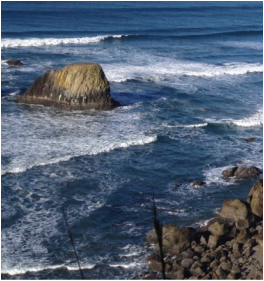

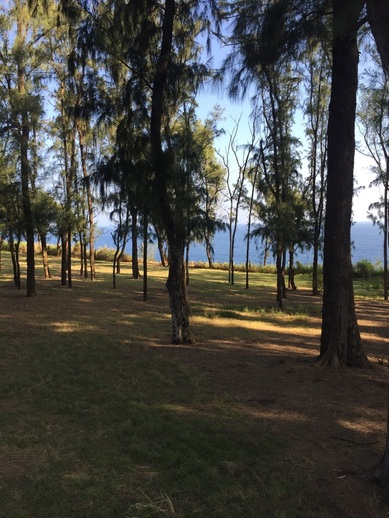
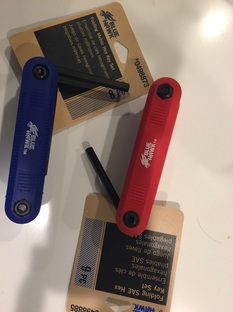
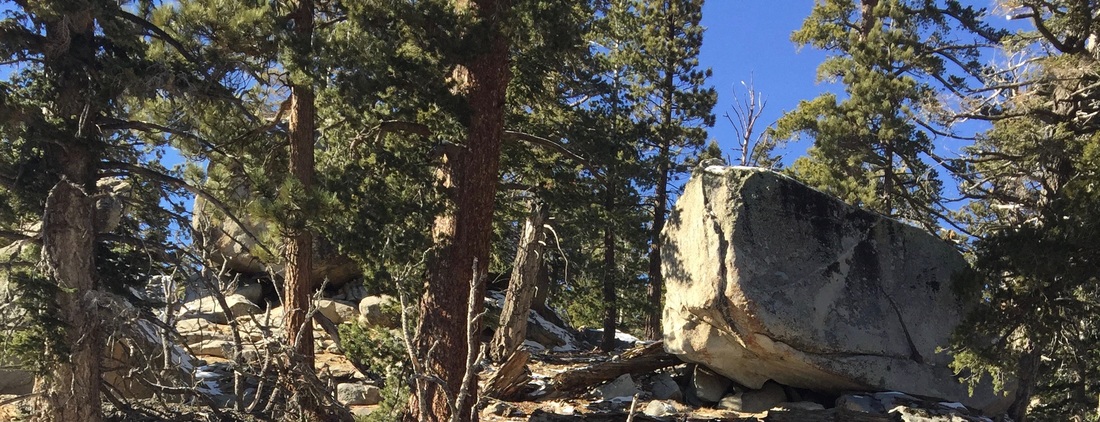
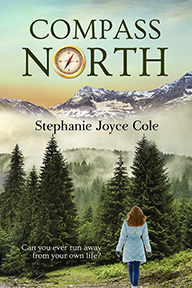

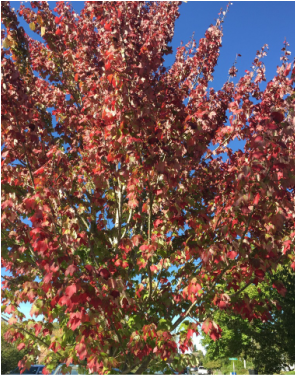
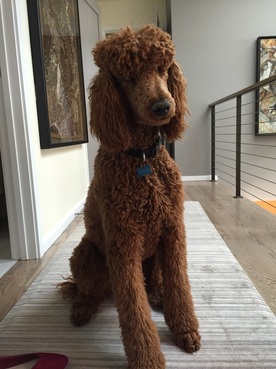
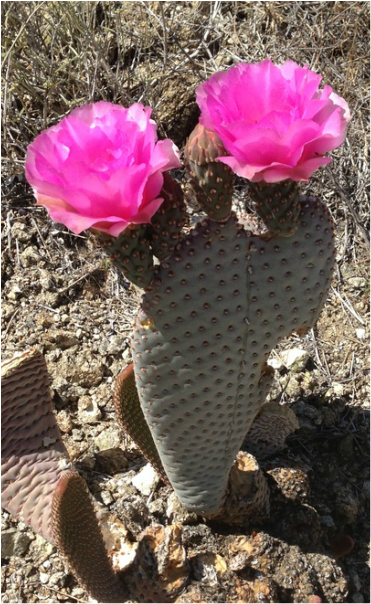

 RSS Feed
RSS Feed
